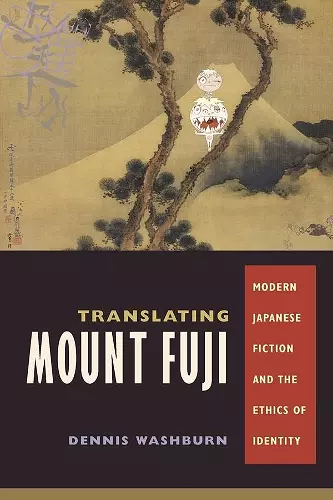Translating Mount Fuji
Modern Japanese Fiction and the Ethics of Identity
Format:Hardback
Publisher:Columbia University Press
Published:24th Nov '06
Currently unavailable, and unfortunately no date known when it will be back

This work explores the evolution of Japanese national identity through the writings of six key authors, highlighting their struggles between Western influence and traditional values, and the resulting literary innovations.
Translating Mount Fuji explores the evolving nature of Japanese national identity through the works of six prominent authors: Ueda Akinari, Natsume Sōseki, Mori Ōgai, Yokomitsu Riichi, Ōoka Shōhei, and Mishima Yukio. Dennis Washburn delves into interconnected themes that reveal the conflicting desires of a nation caught between the allure of Western influences and the need to uphold its Asian traditions. The analysis begins with Ueda's Ugetsu monogatari, emphasizing themes of nostalgia, loss, and the relationship between values and identity.
As the book progresses, Washburn examines Sōseki's Sanshiro, focusing on narrative realism and the metaphor of translation, while also addressing the interplay of ideology and selfhood in Ōgai's Seinen. The author highlights Yokomitsu's efforts to blend national and cosmopolitan perspectives, alongside Ōoka's reflections on the ethical and spiritual dilemmas faced in the post-World War II era. Mishima's exploration of aesthetics, particularly the concepts of inauthenticity and kitsch, further illustrates the diverse literary responses to Japan's national identity crisis.
Washburn's insightful analysis uncovers common threads related to moral and aesthetic values, the significance of autonomy and authenticity in cultural definitions, and the complexities of cultural translation. By addressing the persistent anxieties that shaped these authors' works, Translating Mount Fuji presents a compelling narrative of the literary experimentation that emerged from Japan's transition from tradition to modernity. This book serves as a valuable resource for those interested in modern Japanese literature and the intellectual challenges that accompany cultural transformation.
[An] inspired and intelligent volume. Choice Washburn's study offers insightful and engaging readings with perceptive cross-references and intelligent interpretations. Monumenta Nipponica "An intelligent contribution to ongoing debates in Japanese literary studies... [Washburn] is to be congratulated. -- Michael K Bourdaghs Journal of Japanese Studies
ISBN: 9780231138925
Dimensions: unknown
Weight: unknown
320 pages